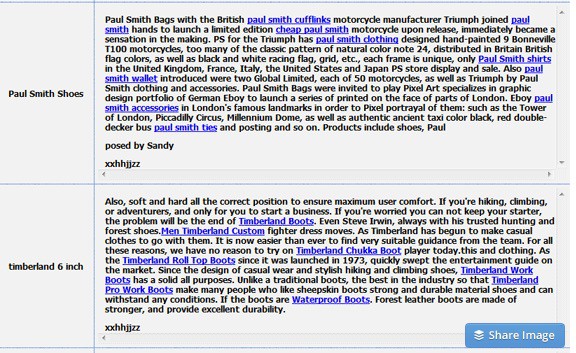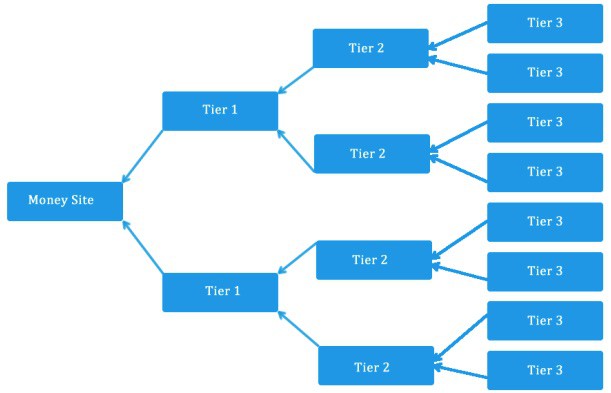It’s no secret that Google and SEO services firms aren’t always the best of friends.
Google makes the rules, SEOs bend (and sometimes break them).
From Google’s perspective, it’s pretty clear why they’d often find themselves at odds with those who would seek to circumvent the system.
On the flip side, search engine optimization companies work hard to help businesses get recognized in the SERPs. Especially those unwilling to cut corners.
Thus, it’s easy to understand why they’d be frustrated at having the carpet pulled out from underneath them every time Google makes a big change to the algorithm.
But it’s an unavoidable side-effect of the way in which they interact with one another in the search ecosystem.
We’ll delve into this further, but first, some history:
Link-Spam
When Google first launched the PageRank system in 1998, the phrase “link juice” quickly came into vogue. Someone realized that the more links you had to your website, the more likely it was to land high in the SERPs.

Unless you’ve been living under a rock, you’ve probably seen spam in a variety of ugly forms. But early on, the most prevalent form became link spamming. Queue Google throwing a justified hissy-fit.
Yes it’s true, Google knew the rise and evolution of SEO’s was a good sign for them. After all, the growing focus and dependency on Google as a search provider would of course increase their importance and bottom-line.
Problem was, they could also see the detrimental effect unscrupulous tactics were having both on their model and on the internet in general.
So they started implementing regular updates and algorithm changes to try and steer SEO’s in a less-spammy direction.
And thus began a vicious cycle.
Private Blog Networks
After link-spamming started netting some pretty big penalties, unsavory types took to any number of other black-hat SEO tactics.
Private blog networks in particular started to started to be the go-to tool for SEO’s that wanted to avoid playing by Google’s rules. SEO firms would build out a number of shell websites and then use them to pass link juice to their “money sites”.

It initially existed as a gray area, but with an update in 2014 it became crystal clear that Google was cracking down on this tactic as well. Who could blame them?
Do we really want the internet littered with more useless shell websites than it already is? Does that benefit anyone other than those directly profiting from taking advantage of them?
It had gotten out of hand. A huge number of sites saw penalties handed down to them during the private blog network purge.
“Tug O’ War”
Like most games, there wouldn’t be much of a contest without the opposing side. Where’s the fun in that? Further, you’ve gotta be competing over something.
Each side fighting for what they think is best for their customers or users respectively.
When SEO’s pull hard, they gain an edge over Google. They find a new way to get powerful results for their clients which may or may not align with how Google envisions the internet being categorized and displayed on their SERPs.
When Google pulls, they enforce new regulations. Regulations that make it harder for an SEO company to work around the way they want them to behave.
Google is always aiming to better define what they believe end-users will want to see when they type something into their search engine.
In case you’re curious, it’s not clear who’s winning. SEO strategy is ever evolving, and talented firms are still able to deliver results for their customers.
But Google also continues to innovate and throw curve balls that keep SEO firms both honest and on their toes.
What does this mean for the end-user
Google is most certainly “too powerful” in the traditional sense. Luckily they don’t seem to have plans for world domination, but if they did we might be in real trouble.
As far as policy goes, if users don’t agree with what Google decides is most relevant, that’s too bad for them.
Fortunately the intention or Google’s search engine seems to be to generally be fair in its summarization and presentation of the internet (minus that mess with the DOJ…).
In a similar vein, SEO’s are seriously influential in determining what content is most accessed on the internet. With a strong team and the right budget, a skilled SEO services company will be able to ensure that internet users will see their client first.
With such power comes responsibility. Despite all of the back and forth, I’m of the opinion that it creates a natural balance that actually keeps both sides honest.
All told, it amounts to a positive net effect for searchers, and that’s what really matters at the end of the day.
Where does it go from here?
All signs point to a continuation of the status quo. Google and SEO firms will most likely continue to push-pull as we’ve been describing throughout this article.
If Google were to make some really unexpected and radical changes, it would risk alienating an entire industry. Further it could disenfranchise business owners that rely upon their ability to earn improved visibility in search engine results pages.
Cumulatively that would look pretty bad for Google, and there wouldn’t be much motivation to do that in the first place.
On the flip side, the best SEO companies will have to serve as leaders in their space. They’ll need to disparage black hat tactics and try to keep the industry as a whole, on the straight and narrow.
So I suppose for now we’ll have to settle for “time will tell.” I for one, will be watching closely.








